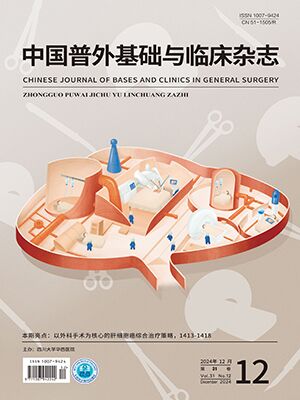Objective To study the relation between changes of the hepatic energy metabolism and allograft viability in early phase after orthotopic liver transplantation, arterial blood ketone body ratio (AKBR) was measured in pre- intra and post-operative phase.
Methods The monkeys were divided into two groups in accordance with survived times. A group (>24h), 5 monkeys survived 29—168 postoperative hours; B group (<24h), 9 monkeys survived only 5—22 hours.
Results AKBR in all models immediately decreased to extraordinarily low state in anhepatic-phase (versus preanhepatic phase, P<0.01), and A group recovered rapidly to the normal levels, and maintained continuously for 12 postoperative hours above the level of 0.7. In contrast in B group, AKBR decreased below 0.7 rapidly and failed to restore to the normal level. Within 12 hours postoperatively, in B group, AKBR was lower than 0.4. Conclusion AKBR is a sensitve indicator to the allograft viability in the early phase after hepatic transplantation.
Citation: ZHANG Bingyan,ZHANG Jie,TAN Jing,et al.. RELATION BETWEEN CHANGES OF THE HEPATIC ENERGY METABOLISM AND ALLOGRAFT VIABILITY IN EARLY PHASE AFTER ORTHOTOPIC LIVER TRANSPLANTATION. CHINESE JOURNAL OF BASES AND CLINICS IN GENERAL SURGERY, 2000, 7(4): 211-213. doi: Copy
Copyright © the editorial department of CHINESE JOURNAL OF BASES AND CLINICS IN GENERAL SURGERY of West China Medical Publisher. All rights reserved




